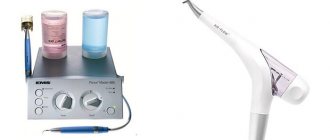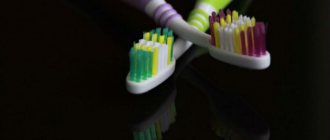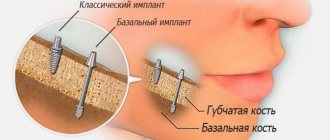A visit to the dentist is an exciting event. To make your meeting with your doctor enjoyable and productive for both, it is useful to familiarize yourself with simple tips. It is not difficult to follow them, and the result will be a good mood and well-being.
So, first of all, you need to allocate quality time for the visit. It is better to choose a day off or a day when you do not need to immediately return to work or other active activities. This will help avoid possible inconvenience caused by pain relief.
Preparing a 5-8 year old child for dentistry
Age is not easy. Children already have their own opinions, ignore fairy-tale scenarios and have experience communicating with doctors. Even if the first visits to the dentist were successful, a preschooler may suddenly be afraid of a new visit.
Tips for parents:
- A detailed, correct story about the appointment - what the doctor will do, why you need to go to the dentist, what manipulations are possible.
- Authoritative opinion - dad, older brother or sister can talk about dental treatment, emphasizing the painlessness of the procedures and the friendliness of the doctors.
- Parents' trust - adults' emphasis on the fact that the doctor is wonderful increases the child's positive attitude.
Plaksina Margarita
“You shouldn’t ignore preparing for the reception of a schoolchild. Even with successful experience before! See for yourself. At the child’s previous appointment, for example, a baby tooth was removed. He did not cry and patiently endured dental procedures. But memories of slight discomfort could remain, and they could easily become the reason for refusing a new visit to the surgeon. Preparation will eliminate fear and help you communicate calmly with your doctor.”
How to stop being afraid: a few simple tips
You need to learn how to treat visits to the dental office correctly. To cope with fear, you should understand: a doctor is not an enemy, but a friend, and treatment is not torture, but a process of getting rid of the disease.
Dentist-therapist at our clinic Oksana Andreevna Rozhkova gave some simple tips with which you can forget about the fear of going to the dentist. All our doctors are understanding of possible anxiety: they know how to relax and calm any patient. You will be comfortable at the DENTA clinic: from the first to the last minute of your visit.
Tip #1. Find a doctor you trust
Choose a specific specialist and make an appointment only with him. A regular doctor will be able to thoroughly understand your dental problems and choose the appropriate treatment method. With him you will be able to establish trusting friendships: visits to the doctor will become a pleasant event!
Do not forget that regular visits to the dentist are an opportunity to avoid the occurrence of dental diseases or identify them in the early stages for quick and successful treatment.
Tip #2. Debunk the Myth of Painful Treatments
Learn about different treatments and types of pain relief.
“The times when a tooth was treated or removed live are long gone. Modern anesthesia is guaranteed to protect you from pain. In addition, the injection site is subject to preliminary “freezing” with a gel or spray.” O. A. Rozhkova, dentist-therapist at the DENTA clinic
You can always share your concerns with a specialist: the doctor will tell you in detail about each stage of the planned manipulations, how pain relief will be carried out and the possibilities of treatment without the use of a drill.
Tip #3. Think about saving time and money
Diseases detected at an early stage are much easier and cheaper to cure than advanced caries or pulpitis, chronic periodontitis or other complex dental lesions. Preventive exams and regular professional cleanings will give you a healthy smile for years to come.
“Compare how much money you will spend on a preventive examination and how much on installing prostheses and purchasing analgesics? Think also about how much time you will lose on a joyless life with pain and on treating a neglected tooth. It's just your choice." O. A. Rozhkova, dentist-therapist at the DENTA clinic
Do you need to eat?
Before visiting the dentist, it is advisable to eat a hearty, high-calorie meal.
Firstly, it is often not recommended to eat for 1-2 hours after treatment, and the appetite of someone who has happily survived all the worries of a dental appointment is on the contrary. Secondly, if you go for dental treatment on an empty stomach, the likelihood of fainting increases. Low blood sugar combined with fear or fatigue is the leading cause of fainting in the dental chair. If you have fainted before, you should prepare especially carefully. It is recommended to eat meat, dairy, vegetable foods, slowly digestible porridge (buckwheat, oatmeal) and pasta at home for breakfast (or lunch - depending on the time of the appointment). And a few minutes before the meeting, you can satiate yourself with quickly digestible sweets. However, for people with an increased gag reflex, the recommendation is the opposite - do not eat at least 3 hours before your appointment. This is especially true for situations related to taking impressions during prosthetics and treatment (or removal) of distant teeth. If this is not your first time going to the doctor, he knows your individual characteristics, and he may recommend some antiemetic drugs before the procedure begins. If this is your first meeting with this dentist, be sure to warn him.
State of health on the day of the dental clinic visit.
Let's move on to the most important points that you should know before visiting the dentist.
If you feel slightly unwell, have a slight cold, have a stuffy nose, have the flu, have an acute respiratory viral infection or herpes has “popped up”, you should reschedule your appointment until you are completely recovered. Dental intervention is also contraindicated for women during their menstrual periods. Here we note the importance of informing the doctor about the fact of pregnancy and breastfeeding.
At the appointment itself, the doctor will definitely ask you about allergic reactions to certain drugs, as well as what medications you are currently taking, so be prepared for these questions, because this will determine the dentist’s next steps.
I'm afraid to have my teeth treated. What to do?
Conventionally, all patients in dental clinics can be divided into those who are afraid of dental intervention and those who do not have the so-called “dentophobia”, which, as research shows, affects almost a third of all patients.
In most cases, fear of dental treatment is based on negative (painful) experiences. Here everything depends on patient-doctor communication, on the patient’s trusting attitude and the doctor’s exclusive attention. Therefore, the first thing that is required of you, if you are afraid to have your teeth treated, is to inform the dentist about this, real professionals will listen to you carefully and provide calm, comfortable, and most importantly, effective treatment .
Don't frighten children with your fears
We all come from childhood. And most of us have strong fears associated with dental treatment in our memories. Don't dump your own emotions on your children. A child of 2-2.5 years old sees and experiences the world through the prism of his parents. That’s why it’s so important not to infect your baby with your fears.
You will definitely share your emotions with your child and talk about the adventures that happened to you in the dentist’s office. Just wait until he grows up. Before this, parents face another important task - to make their child fall in love with the doctor. It will be good if the child feels your own trust. It's great if you can find a doctor who will monitor both you and your children. The child will see that his children's doctor is treating you too. Our clinic has such a practice with family dentists. We monitor not only the dental health of children, but also their parents.
The patient is an active party in the treatment process!
Every patient should be aware of their fundamental rights when seeking dental care. Article 20 of the Federal Law of the Russian Federation “On the fundamentals of protecting the health of citizens in the Russian Federation” tells us that before the procedure of medical intervention, every person has the right to familiarize himself with the possible consequences after treatment, with methods of providing assistance, after which he gives his written consent to carry out those or other procedures.
Also, every person has such rights as the right to freely choose a specialist, the right to maintain medical confidentiality. The dentist should not disclose information about the patient’s health status to other persons.
If a patient discovers that a specialist’s service was poorly performed, he may demand that the deficiencies be corrected free of charge, a reduction in the price for the procedure provided, or a free repeat dental procedure. The consumer will be able to reimburse all funds spent on a poor-quality procedure, demand legal expenses, compensate for moral damage caused, and losses associated with outside care. He can also reimburse the money that he was forced to spend on purchasing medications.
The patient can present his demands during the provision of the service or during the period of validity of the guarantee for the dental procedure. If the clinic does not provide any guarantees, then within two years from the date of receipt of the medical procedure.
First (repeated) trip to the dentist with a child 3-5 years old
Preparing a child for the dentist involves simple explanations of the doctor’s actions. Kids perceive the world through play, so the best ways to “talk” about reception are:
- game scenarios - examine the mouth of a soft hippopotamus, treat caries of baby teeth of a stuffed dog, play in the situation “a doll comes to the doctor”;
- various crafts and storytelling - make a tooth from plasticine and a harmful worm that is trying to damage the craft, or draw a “dirty” tooth and boldly erase the dirt with an eraser;
- watching cartoons - individual thematic tales about teeth and doctors, as well as series about visiting the dentist with your favorite cartoon characters;
- exciting teeth cleaning - during the process you can talk interestingly about the work of the doctor, removing dirt from teeth with a special vacuum cleaner and saving teeth from evil microbes.
If fear and mistrust persist, it is worth rescheduling the examination and making an initial introductory appointment. Having been in a beautiful office and touched all the tools, the baby will be imbued with confidence and will stop worrying.










